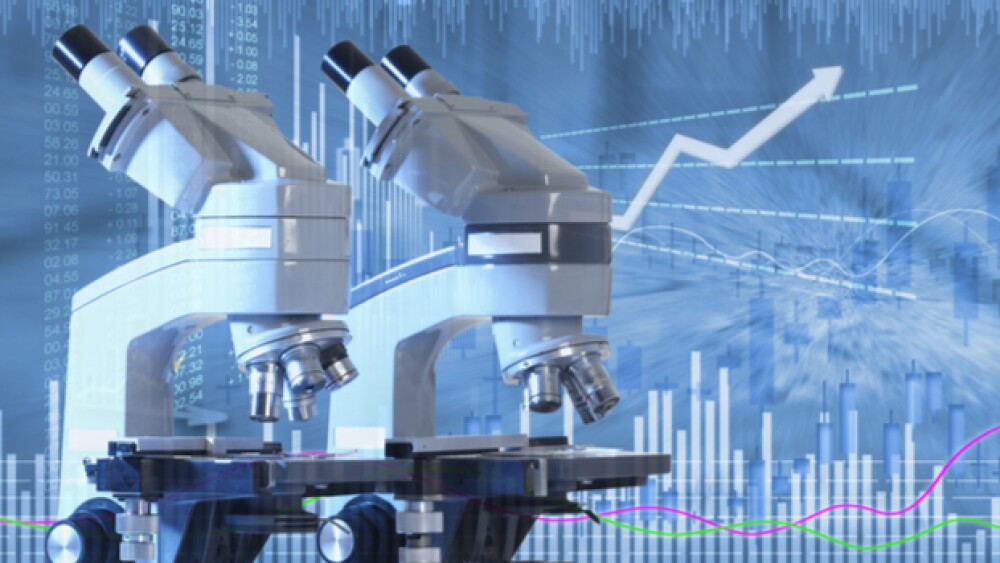Global healthcare spending is expected to increase dramatically to more than $10 trillion by 2022, driven primarily by an increase in spending on data that will increase value and create a sustainable culture.
Global healthcare spending is expected to increase dramatically to more than $10 trillion by 2022, driven primarily by an increase in spending on data that will increase value and create a sustainable culture.
Greg Reh, Deloitte Global Life Sciences & Health Care Industry leader, said that the pace of change in the life science industry is moving faster than it has in years.
“Building strategic and relationship-driven partnerships with patients and regulators, focusing on external innovation and expanding richly networked ecosystems, mobilizing data and collaborating with nontraditional partners will be key to navigating the change life sciences will face in 2019 and beyond,” Reh said in a statement.
According to Deloitte’s 2019 Global Life Sciences Outlook, as companies look at potential growth, there are several key factors for 2019 and beyond. Deloitte said during 2019 the life sciences sector will see a strategic rise of the digital mindset, as well as further adoption of transformative technologies. Deloitte said M&A will remain important to the pharma industry, but noted that external innovations are likely to become “a meaningful culture change-agent through innovative and creative partnerships with new entrants and non-traditional players.” Deloitte also pointed to decreasing returns in research and development as one of the key reasons these external deals are so important for biopharma companies. The report shows that R&D returns have fallen to their lowest levels in nine years for 12 large-cap pharma companies. The returns fell to 1.9 percent in 2018, down from 10.1 percent in 2010.
“In 2019, external innovation is likely to continue to be a strategic focus for pharma companies that may face patent expiries, competition from generics and biosimilars, weak new drug pipelines, and growing technology needs,” Deloitte said.
During 2018, Deloitte noted that large and transformative acquisitions within the range of $60 to $70 billion defined the year. That was also repeated at the beginning of 2019, with Bristol-Myers Squibb’s $74 billion deal for Celgene. This year, the report suggests companies will demonstrate an appetite for mid-sized strategic transactions that complement a company’s core and shedding of non-core assets.
Another change that could be coming to the industry is a focus on outsourcing. Deloitte predicted that over the next few years, major pharmaceutical companies will “shift from transactional outsourcing relationships to more strategic, relationship-based models for biologics, data-driven clinical innovation, and novel therapy manufacturing capacity.” Companies will also outsource expertise in various technologies, such as artificial intelligence, robotic and cognitive automation, as well as cloud computing. By outsourcing these areas, Deloitte said pharma companies can increase efficiencies, lower costs, and decrease clinical timelines.
By 2022, pharma spending is expected to hit $1.2 trillion worldwide, the Deloitte report shows. That’s about10 percent of total healthcare spending expected by 2022. According to Deloitte, global healthcare spending is expected to hit $10.059 trillion by that time. There are multiple factors that will impact healthcare costs, including an increase in life expectancy.
The report shows a 6.5 percent rate of growth in the pharma industry between 2018 and 2022. That’s a significant jump over the 1.2 percent growth rate from 2011 to 2017. Growth drivers in pharma over the next few years include novel therapies that address key unmet needs, as well as increase access to medicines as a result of new pricing policies around the world, Deloitte said. Orphan diseases are expected to become key areas for revenue. Deloitte predicted treatments for these rare diseases will account for 20 percent of prescription sales by 2024. CAR-T therapies and gene therapies are also expected to be significant drivers for the industry.
However, at the same time, in the U.S., where pricing has become a hot political issue, Deloitte noted that this year, it estimates $19 billion in prescription sales may be at risk. There are some issues that could impact growth. Leading the way is payer scrutiny, followed by increased competition from generics and biosimilars, according to the report.





